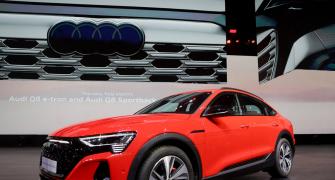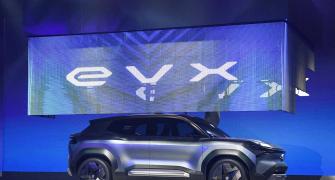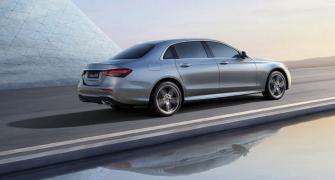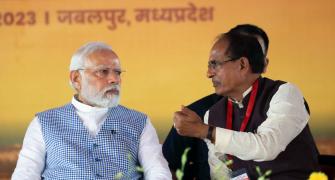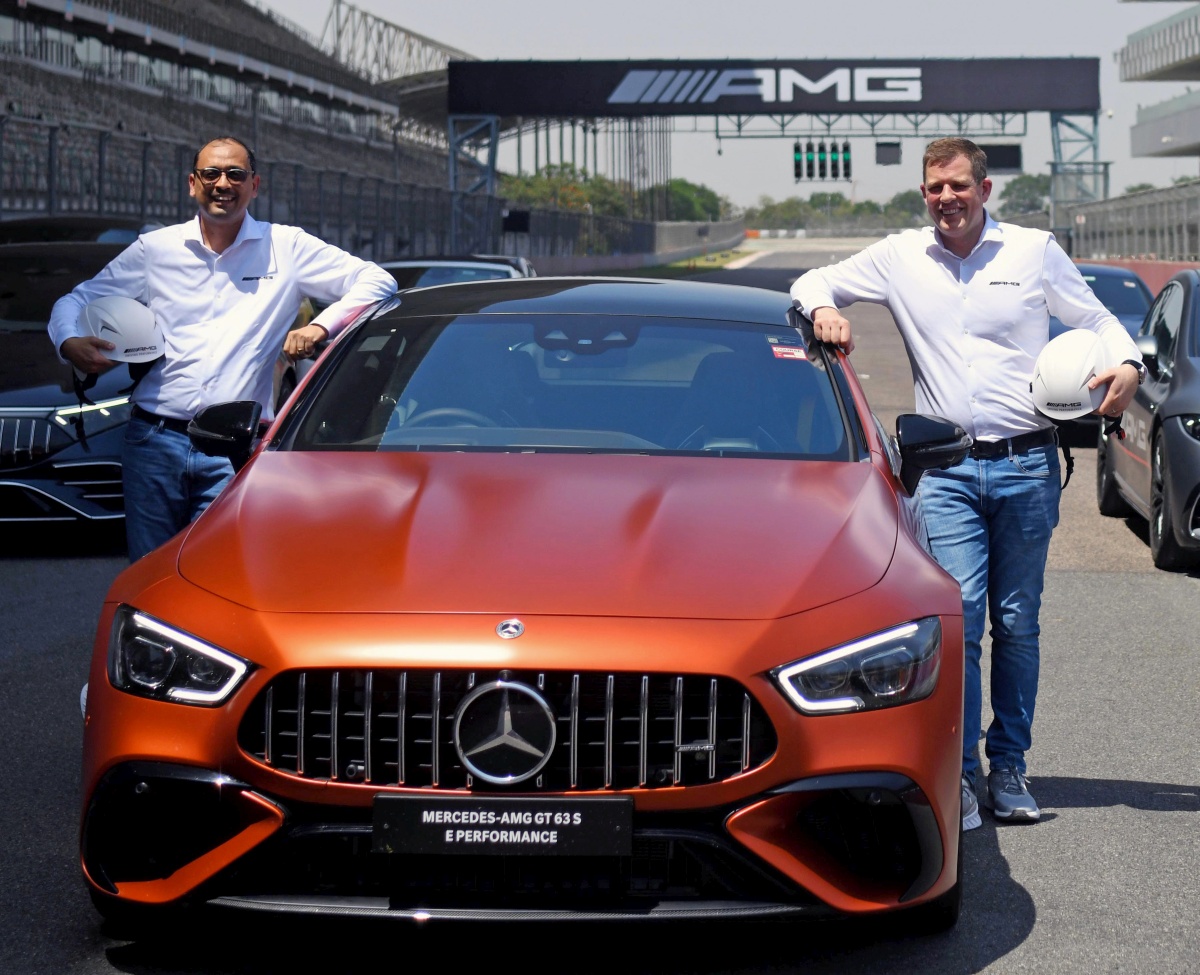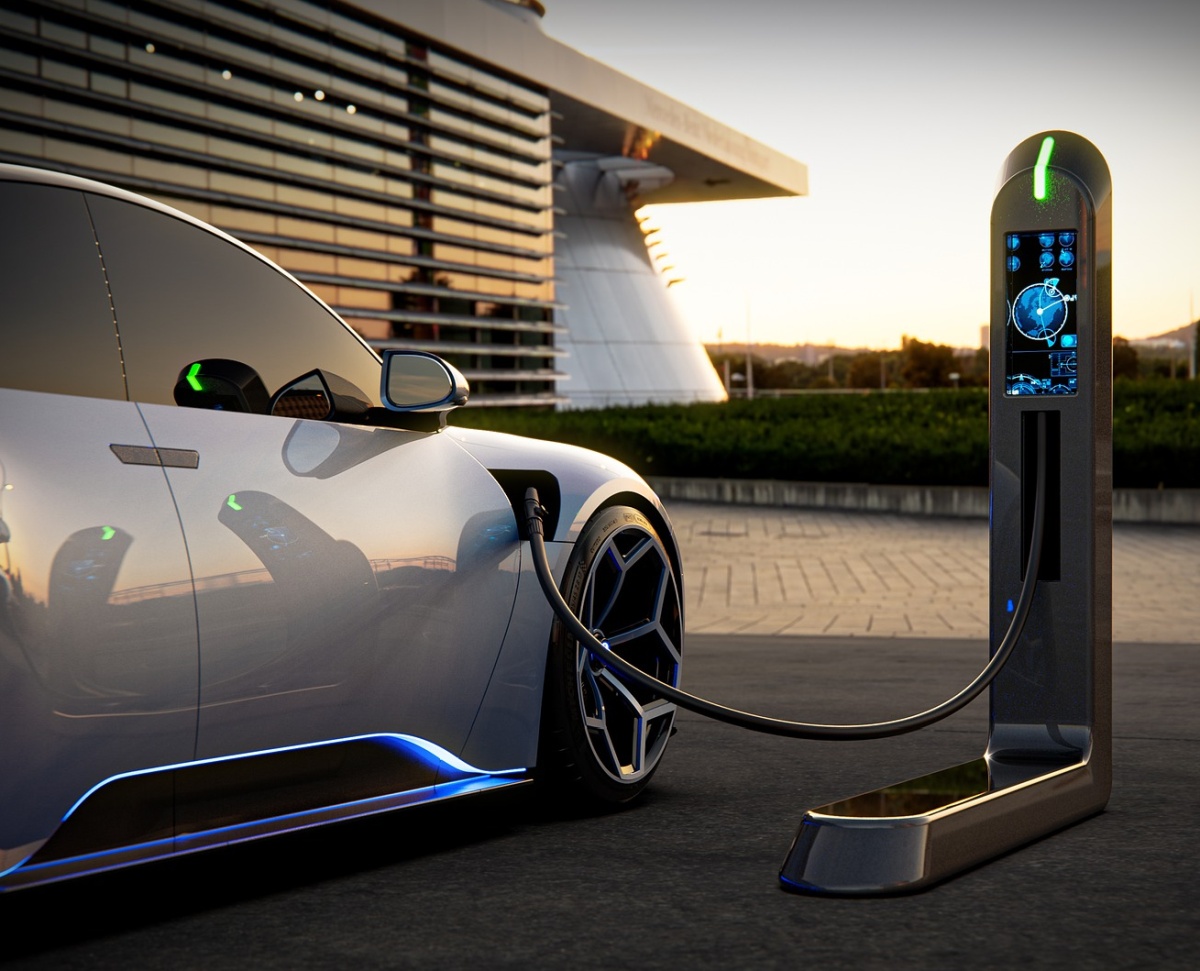After a brief lull during the pandemic, there is a strong revival in luxury car sales, bolstered by more launches across price bands, replacement demand, ban on old diesel vehicles in the NCR, and 'revenge buying'.
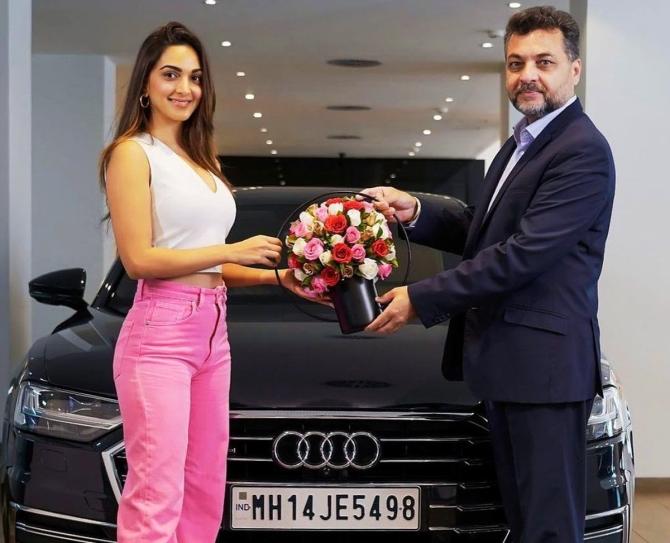
It was not just about the moolah, but also the mindset. Unverified legend has it that it took a Mercedes executive two years in the late 1990s to convince Ratan Tata, who was then the chairman of Tata Sons, to buy a Mercedes.
Naturally, the German maker of luxury cars, which came to India in 1994 in partnership with the Tata group, had a slow start.
In a country taking its first ginger steps towards an open economy and the resulting prosperity, few had the money, and those who did, were reluctant to flaunt it.
In 2006, the luxury car market in India comprised just 3,050 cars.
Then came competition: BMW and Audi, the two compatriots and rivals of Mercedes, came to India in 2007.
Six years later, in the first quarter of 2012, Mercedes found itself in the third place.
The other two were marginally ahead, but they were ahead nonetheless, banking on sports utility vehicles (SUVs) and cars with price tags that put them within the reach of people who were neither 'old money' nor chairmen of companies.
The present picture could not be more contrasting.
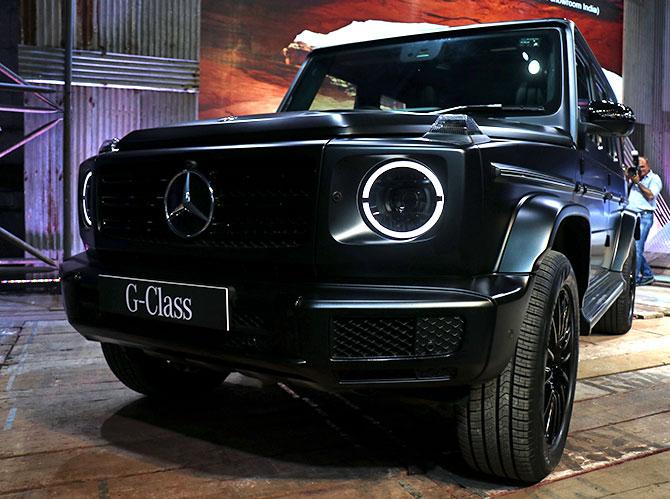
In two separate interviews with Business Standard in recent days, Santosh Iyer, 46, who last August became the youngest and the first Indian to lead the operations of Mercedes-Benz India, made two telling statements.
"Top-end vehicles have transitioned the quality and structure of the luxury segment, despite increasing vehicle prices. Demand for these vehicles remains strong," he said in July.
This month, he said: "We have a balanced portfolio. We are firmly and fully invested in both -- sedans as well as SUVs."
This bends the two rules -- cheaper cars and SUVs -- that his rivals had adopted to take the lead in India all those years ago. And the results are there to see: Mercedes is at the forefront of a surge in luxury car sales in India.
After a strong first half (see graphic), luxury car sales are likely to hit a record high this year.
According to industry estimates, more than 21,000 luxury cars were sold during January-June 2023, and the full-year estimate is to cross 46,000-47,000 cars.
Business Standard has obtained data from the Vahan portal under the ministry of road transport and highways, which aggregates numbers from regional transport offices for vehicle registrations.
Since all RTOs are still not covered by Vahan, there is variance with the retail sales numbers released by companies, but it reveals a broad trend.
The data shows luxury car registrations are back at the 2019 level, and, according to industry insiders, this year is likely to witness record sales of luxury vehicles, beating the previous high of 2018.
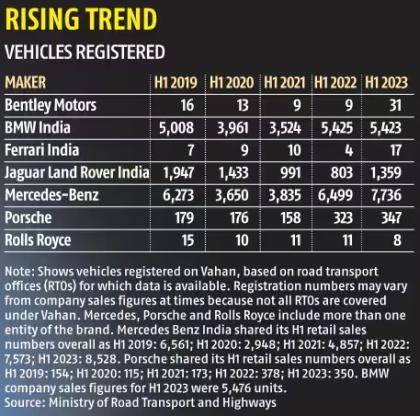
Mercedes is well ahead of the pack. According to Vahan, 7,736 Mercedes cars were registered during January-June.
The company clarified that if all RTOs were combined, it would have retailed 8,528 units in the first half, its best first half ever, up from 7,573 in the same period of 2022.
As the Indian passenger vehicles market is fuelled by SUVs, 48 per cent of Mercedes' sales are sedans, down slightly from 52 per cent.
Secondly, TEVs, those priced above Rs 1.5 crore apiece, saw their share in the company's sales jump from less than one in eight in 2018 to one in four this year.
Clearly, after a brief lull during the pandemic, there is a strong revival in luxury car sales, bolstered by more launches across price bands, replacement demand, ban on old diesel vehicles in the NCR (National Capital Region), and 'revenge buying'.
It is a tide that is lifting not only the Mercedes boat. There were 5,423 vehicles registered from its peer, BMW India, during the first half of 2023, according to Vahan, though not much changed from the same period of 2022.
The public sales figure for the first half is 5,476 units. The company is betting on a better second half.
"BMW Group India has recorded the highest ever half-yearly sales, and we are optimistic that 2023 will be one of our finest years. We hope to achieve double-digit growth," said Vikram Pawah, president of BMW Group India.
Audi India has sold 3,474 units in January-June this year, a 96 per cent jump compared to the first half last year, when it sold 1,765 units.
However, according to Vahan, only 932 Audis were registered in the first half of 2023, and 381 in the same period of 2022.

An Audi India spokesperson clarified that the Vahan data had only the completely built unit (CBU) numbers.
"The other cars we sell at Audi India (Q3, Q3 Sportback, Q5, Q7, A4, A6) are all locally assembled at the Skoda Auto Volkswagen India plant, and hence our numbers are added under Skoda Auto Volkswagen India's data on Vahan," the spokesperson explained. Audi is part of the Škoda-VW stable.
Therefore, the graphic with this story does not include Audi's numbers from Vahan.
Audi India head Balbir Singh Dhillon said about 21,000 cars had been sold in the luxury segment in the first six months of the year, and normally the second half of the year is better, boosted by festival-season buying.
"Our estimate is that the whole luxury car segment should be close to 46,000-47,000 cars this year, which definitely is an all-time high," said Dhillon.
While the three German brands stay in the lead, others such as Jaguar-Land Rover India, too, have fared well.
According to Vahan data, JLR registrations have not yet achieved the level seen in the first half of 2019, but they have grown by almost 70 per cent from the first half of 2022.
JLR registered 1,359 units during January-June 2023, the data shows.
As Iyer of Mercedes-Benz India says, "The growth of the TEV segment underscores the changing preference and maturity of the Indian luxury car buyer."
But he will still find it difficult to sell one of his cars to Ratan Tata. Now the chairman emeritus of the Tata group, which owns JLR, Tata might prefer a Jaguar.
Feature Presentation: Rajesh Alva/Rediff.com


